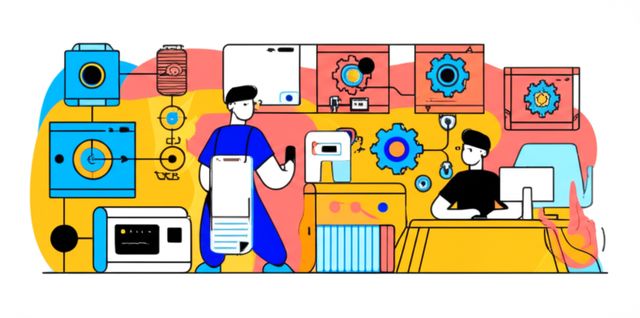Process Automation
Process Automation is the use of computer software to automate tasks and processes that are repetitive and time-consuming. It can be used to improve efficiency, accuracy, and consistency, and can free up human workers to focus on more complex and creative tasks.
Why Learn Process Automation?
There are many reasons why one might want to learn about Process Automation. Some of the most common reasons include:
- To improve efficiency. Process Automation can help to automate tasks that are repetitive and time-consuming, which can free up human workers to focus on more complex and creative tasks. This can lead to increased productivity and output.
- To improve accuracy. Process Automation can help to reduce errors by eliminating the human element from repetitive tasks. This can lead to improved quality and consistency in output.
- To improve compliance. Process Automation can help to ensure that processes are followed consistently and accurately, which can help to reduce the risk of non-compliance.
- To free up human workers. Process Automation can free up human workers from repetitive and time-consuming tasks, which can allow them to focus on more complex and creative tasks. This can lead to increased job satisfaction and motivation.
- To gain a competitive advantage. Companies that use Process Automation can gain a competitive advantage by improving efficiency, accuracy, and compliance.
How to Learn Process Automation
There are many ways to learn about Process Automation. One of the most popular ways is to take an online course. There are many online courses available that can teach you the basics of Process Automation, as well as more advanced topics. Online courses are a great option for people who want to learn at their own pace and on their own schedule.
Another way to learn about Process Automation is to read books and articles on the topic. There are many books and articles available that can teach you about the different aspects of Process Automation. Reading books and articles is a great way to learn in-depth about the topic.
You can also learn about Process Automation by attending workshops and conferences. Workshops and conferences are a great way to learn from experts in the field and to network with other people who are interested in Process Automation.
Careers in Process Automation
There are many different careers available in Process Automation. Some of the most common careers include:
- Process Automation Engineer. Process Automation Engineers design, develop, and maintain process automation systems.
- Process Automation Analyst. Process Automation Analysts analyze and improve business processes to identify areas that can be automated.
- Process Automation Specialist. Process Automation Specialists implement and manage process automation systems.
- Process Automation Consultant. Process Automation Consultants help companies to develop and implement process automation strategies.
- Process Automation Manager. Process Automation Managers oversee the development and implementation of process automation systems.
Benefits of Learning Process Automation
There are many benefits to learning about Process Automation. Some of the most common benefits include:
- Increased efficiency. Process Automation can help to automate tasks that are repetitive and time-consuming, which can free up human workers to focus on more complex and creative tasks. This can lead to increased productivity and output.
- Improved accuracy. Process Automation can help to reduce errors by eliminating the human element from repetitive tasks. This can lead to improved quality and consistency in output.
- Improved compliance. Process Automation can help to ensure that processes are followed consistently and accurately, which can help to reduce the risk of non-compliance.
- Increased job satisfaction. Process Automation can free up human workers from repetitive and time-consuming tasks, which can allow them to focus on more complex and creative tasks. This can lead to increased job satisfaction and motivation.
- Competitive advantage. Companies that use Process Automation can gain a competitive advantage by improving efficiency, accuracy, and compliance.
Conclusion
Process Automation is a powerful tool that can be used to improve efficiency, accuracy, and compliance. It can also free up human workers to focus on more complex and creative tasks. If you are interested in learning about Process Automation, there are many resources available to help you get started.


